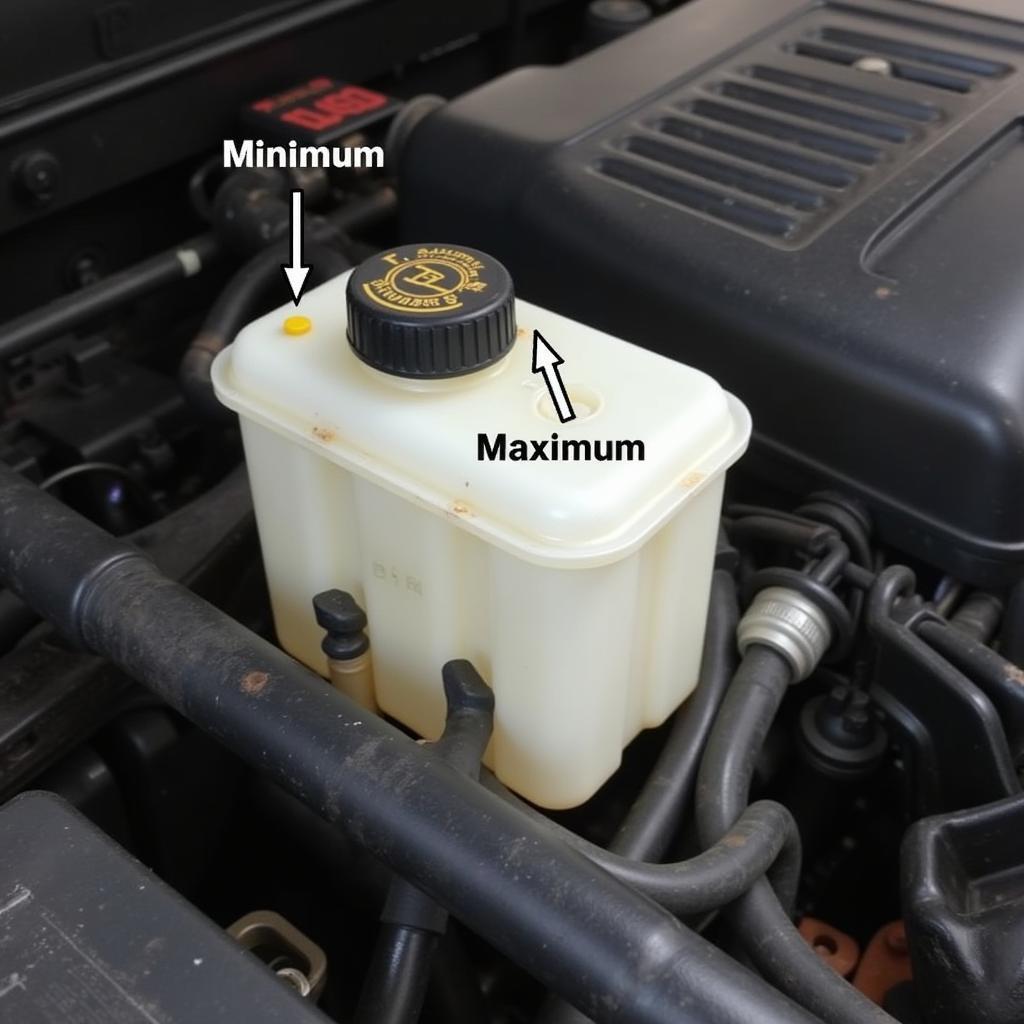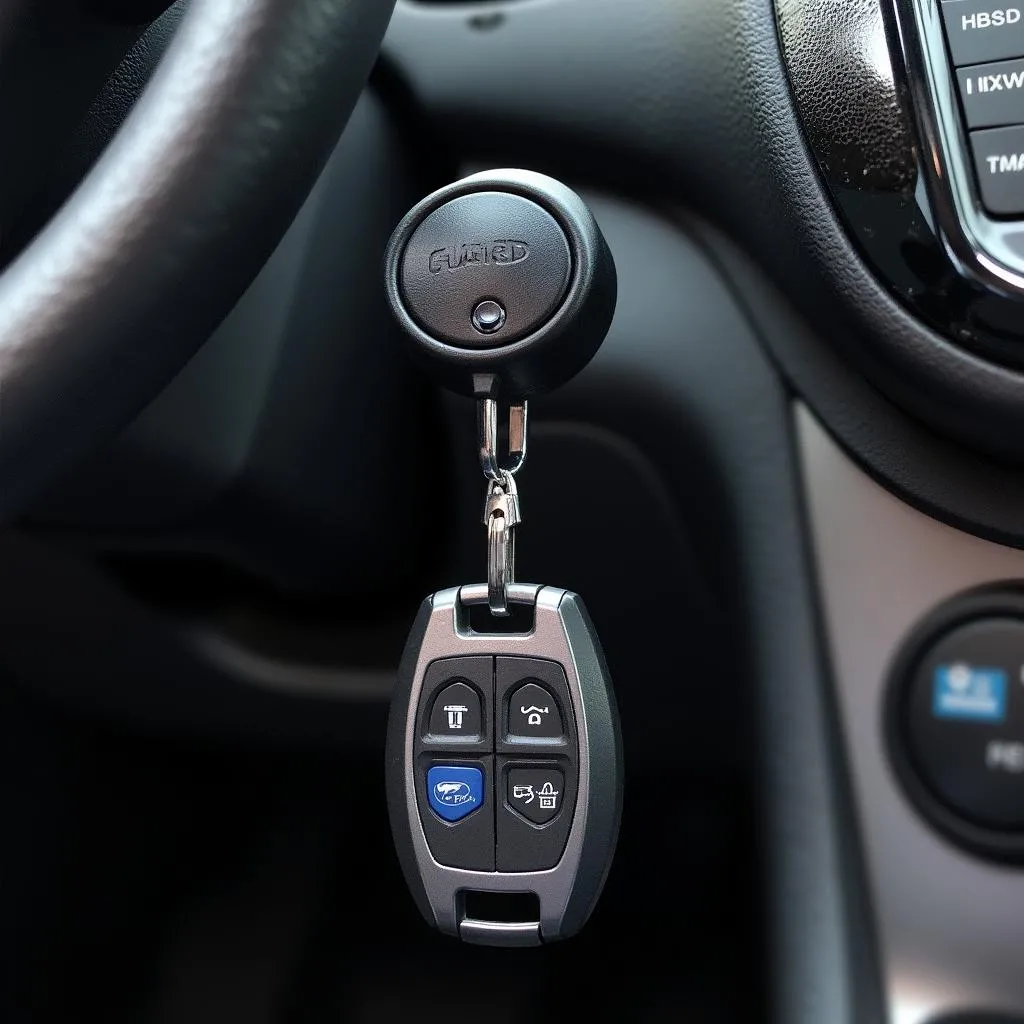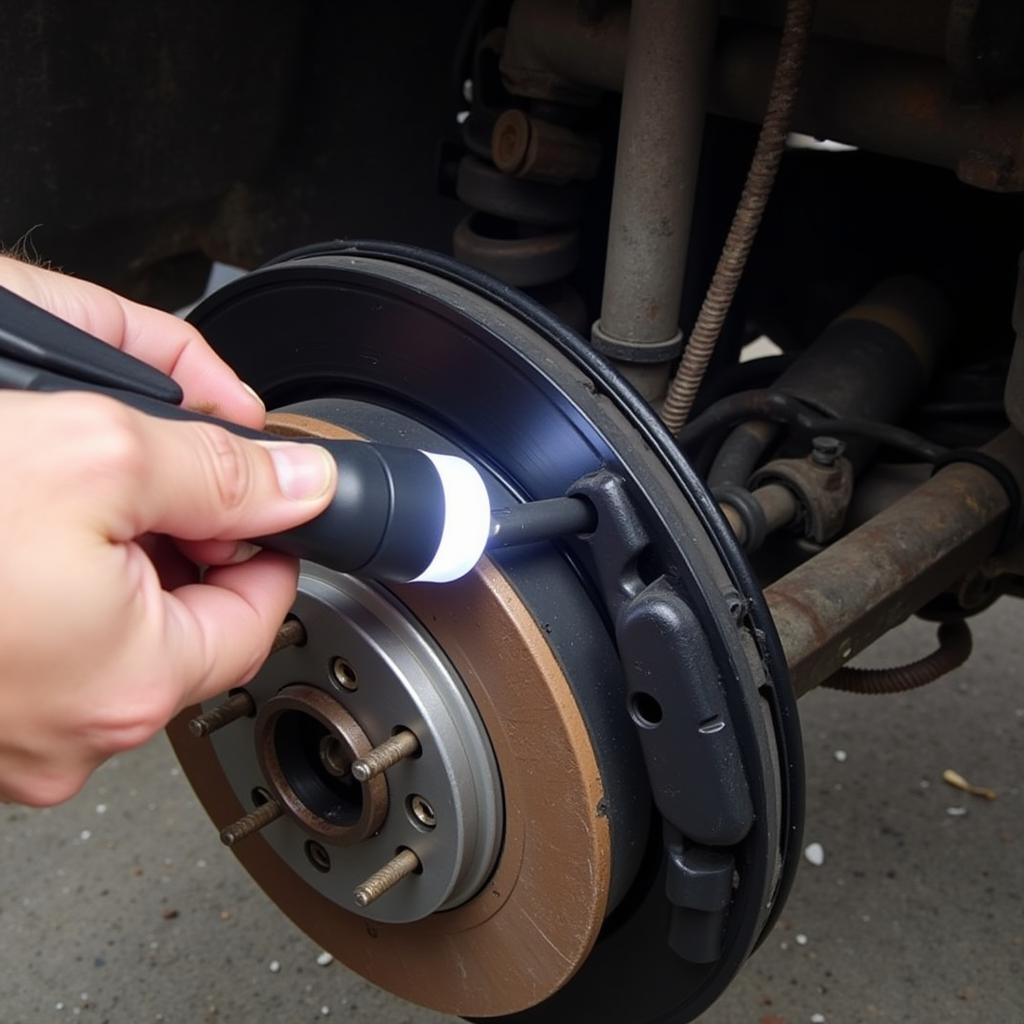Experiencing a brake failure warning light on your Volvo V70 dashboard can be a nerve-wracking experience. This amber warning light, often accompanied by messages like “Brake Failure Stop Safely” or “Anti-Skid Service Required,” signifies a potential issue within your car’s complex braking system.
While it’s crucial to stop driving immediately when this warning appears, understanding its potential causes can save you time, money, and unnecessary stress. This article will delve into the common reasons behind the V70 brake failure warning and guide you through potential solutions.
Common Causes of the “Brake Failure” Warning on a Volvo V70
Several factors can trigger the brake failure warning on your V70. Here are some of the most frequent culprits:
- Low Brake Fluid: This is often the most straightforward culprit. Brake fluid is the lifeblood of your braking system, and a leak or low fluid level can significantly compromise braking performance.
- Faulty Brake Pad Wear Sensors: Your V70 is equipped with sensors that monitor brake pad wear. When the pads wear down to a certain level, the sensors trigger the warning light.
- ABS Module Malfunction: The Anti-lock Braking System (ABS) is a crucial safety feature. A malfunctioning ABS module can disrupt the brake system’s normal operation, triggering the warning.
- Brake Booster Issues: The brake booster assists in providing the necessary force for braking. A faulty booster can lead to a hard brake pedal or reduced braking power, triggering the warning light.
- Electrical Problems: Issues like faulty wiring, a blown fuse, or a malfunctioning brake light switch can interrupt communication within the braking system, causing the warning light to illuminate.
 Volvo V70 Brake Fluid Reservoir
Volvo V70 Brake Fluid Reservoir
Diagnosing the Problem: Next Steps
Identifying the root cause of the brake failure warning often requires a systematic approach:
- Check the Owner’s Manual: Your V70’s owner’s manual is an invaluable resource. It often provides specific information about the warning lights and troubleshooting steps.
- Inspect Brake Fluid Levels: Carefully check the brake fluid reservoir. If the fluid level is low, there might be a leak.
- Visual Inspection: Look for any visible signs of damage or leaks in the braking system components, such as brake lines, calipers, and hoses.
- Consult a Professional: If you cannot identify the issue or are uncomfortable working on your car’s braking system, it’s best to consult a qualified mechanic specializing in Volvo vehicles. They have the expertise and diagnostic tools to pinpoint and rectify the problem effectively.
Importance of Addressing Brake Issues Promptly
Ignoring a brake failure warning can have serious consequences, potentially leading to brake failure and accidents. Promptly addressing brake problems ensures your safety and the well-being of your passengers and other road users.
Remote Diagnostics and Software Solutions: The Future of Car Repair
In today’s digitally connected world, remote diagnostics and software solutions are transforming the automotive repair landscape. Advanced diagnostic tools allow skilled technicians to access your car’s computer system remotely, diagnose problems, and even perform software updates or programming fixes—all without needing your physical presence at a repair shop.
For specific issues like those related to the ABS module or other electronic components, remote software solutions can be a quicker and more cost-effective solution compared to traditional repair methods.
Preventing Future Brake Problems
Preventing brake problems is always better than dealing with their consequences. Here are some preventive measures:
- Regular Brake Inspections: Adhere to your Volvo’s recommended maintenance schedule for brake inspections.
- Timely Brake Fluid Flushes: Over time, brake fluid can absorb moisture, reducing its effectiveness.
- Quality Brake Parts: When replacing brake components, opt for high-quality parts from reputable manufacturers.
- Avoid Riding the Brakes: Constantly keeping your foot on the brake pedal can lead to premature wear.
brake warning light on volvo v70
Conclusion: Your Safety is Paramount
A brake failure warning light on your Volvo V70 should never be ignored. By understanding the common causes and taking prompt action, you can ensure the safety and reliability of your Volvo’s braking system. Regular maintenance, quality parts, and a proactive approach to car care are your best defenses against unexpected brake issues. And remember, when in doubt, seeking professional help is always the wisest course of action.
FAQs about Volvo V70 Brake Failure Warning
1. Can I drive my Volvo V70 with the brake failure warning light on?
No, it’s extremely dangerous to drive with the brake failure warning light illuminated. It indicates a potential problem with your braking system.
2. How much does it cost to fix a brake failure warning on a Volvo V70?
The repair cost varies significantly depending on the underlying cause.
3. How often should I check my Volvo V70’s brake fluid?
It’s recommended to check your brake fluid level at least once a month.
4. Can a faulty ABS sensor cause the brake failure warning?
Yes, a malfunctioning ABS sensor can disrupt the ABS system and trigger the warning.
5. What is involved in a Volvo V70 brake system flush?
A brake system flush involves removing the old brake fluid and replacing it with fresh fluid. This process helps maintain optimal braking performance.
volvo v70 2000 brake lights warning lights intermittent
Remember, these FAQs provide general information. Always refer to your owner’s manual and consult with a qualified mechanic for specific advice regarding your Volvo V70.


